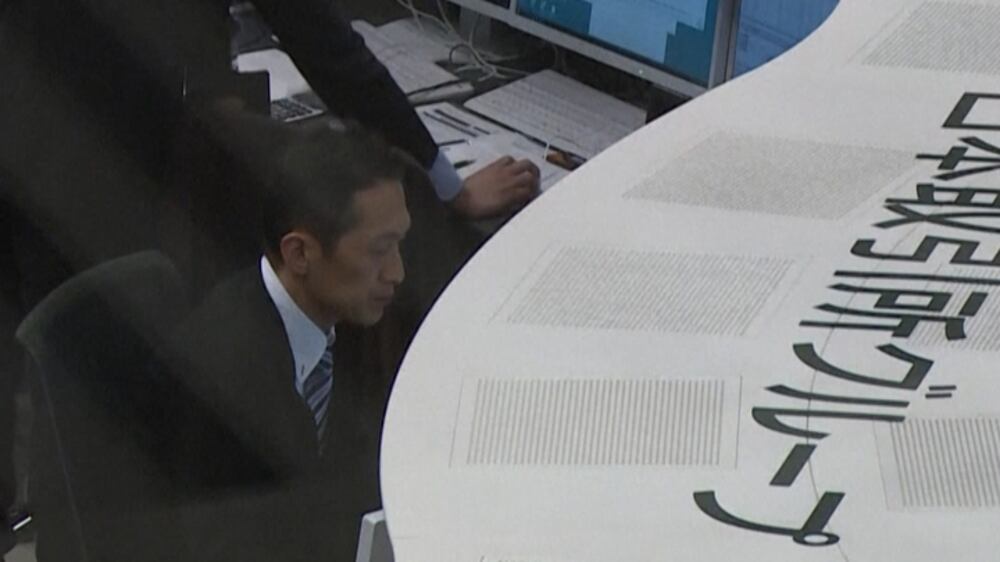Coronavirus: Latest updates as markets plunge
Hundreds of billions of dollars were wiped off Gulf markets on Sunday after they were hit with their biggest one-day fall sell-off in 15 years. More than $180bn was wiped off from the region's biggest bourse, Saudi Arabia's Tadawul, while trading in the Kuwait Premier Market index was suspended for the second time in six days after hitting a daily decline limit of 10 per cent in company share values.
The rapid downward decline in local markets followed a slump across global markets on Friday due to fears of the impact of the coronavirus on the global economy. Globally more than $7 trillion was wiped out last week across markets. The dip in Gulf markets accelerated because oil prices plunged 10 per cent on Friday after an alliance between Opec and a group of non-Opec members including Russia, failed to agree on a deal to deepen production cuts in response to falling demand.
"GCC markets lost $211.5 billion, of which Saudi Arabia alone lost $184.5bn in value," M.R. Raghu, managing director of Marmore Mena Intelligence, a division of Kuwait Financial House, Markaz, said. Although historical data is limited, GCC markets have not witnessed a one-day fall this big since 2005, he added.
The Dubai Financial Market closed 7.9 per cent lower. Market heavyweight Emaar Properties fell 9.7 per cent and Dubai's biggest lender, Emirates NBD, saw its shares fall by 9.6 per cent.
The Abu Dhabi Securities market index also dropped 5.4 per cent, with Abu Dhabi Islamic Bank falling 10 per cent, Abu Dhabi Commercial Bank dropping 9 per cent and Abu Dhabi National Energy Company, also known as Taqa, declining 9.9 per cent.
Saudi Arabia's Tadawul All-Share Index closed 8.3 per cent lower. Saudi Aramco traded 9.1 per cent lower, falling below its IPO listing price. Some 191 companies on the exchange saw their values fall, with only two companies increasing in value.
The decline in markets on Monday was sparked as much by the expectation that oil prices could fall further as by the failure of the Opec+ alliance to agree a deal, according to Charles-Henry Monchau, chief investments officer at Dubai-based Al Mal Capital. Saudi Aramco is cutting prices further and is expected to ramp up production as the current agreement expires.
Mr Monchau said Brent crude prices could fall as low as $20-$25 per barrel if the battle for market share intensifies, which could have "very bad consequences for the whole region".
"The region remains dependent on government spending, and weaker oil prices ... means lower spending," he said.
Lower oil prices could have a knock-on effect on credit markets, where spreads between investment-grade and high-yield debt have already been widening.
"Credit markets are very interlinked," Mr Monchau said. "When the credit market went into a massive correction in 2014-15 it was initially triggered by energy [companies], and there was a spillover into other industries. If the credit market weakens, all risk assets weaken," he added.
"There is clearly risk-off within the GCC, where oil still remains the single-largest income contributor," said Nishit Lakhotia, head of research for Bahrain-based investment bank Sico, who argued that banks, in particular, will come under pressure.
"The recent 50 basis point emergency Fed cuts and expectation of further cuts in the near term implies pressure on net interest margins for the banks," he said.








